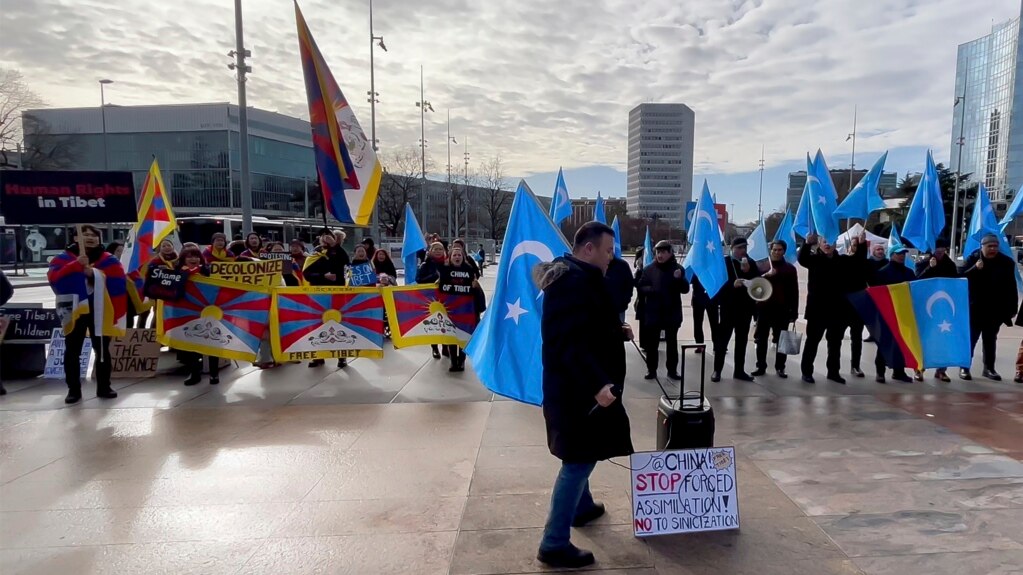China faced a review of its human rights record at the United Nations offices in Geneva, Switzerland on Tuesday.
All U.N. members face what is called a “universal periodic review” every four and a half years by the U.N. Human Rights Council.
Many nations used the review to press China to permit more freedom of expression. Some also called on China to protect the rights of ethnic minorities and to end a disputed national security law for Hong Kong.
China’s ambassador to the U.N., Chen Xu, led a group of delegates. They represented about 20 ministries in the Chinese government. Chen told the U.N. Human Rights Council about China’s efforts to reduce poverty. He said citizens voted in “democratic elections,” and said freedom of religious belief is protected.
“China upholds respect for and protection of human rights as a task of importance in state governance,” Chen said.
The review process meant that many countries offered advice and criticism.
Leslie Norton of Canada called on China to end “all forms of enforced disappearances targeting human rights defenders, ethnic minorities and Falun Gong practitioners.”
Falun Gong is a spiritual movement in China that has been targeted by the Chinese government. Rights activists say the government has arrested, imprisoned, tortured, and sometimes killed Falun Gong members.
Norton also pressed for an end to Hong Kong’s national security law. The law calls for punishment against those who are accused of harming China’s national security. Protestors, activists, and former opposition lawmakers have been arrested under that law.
Czech Ambassador Vaclav Balek urged China to “end the criminalization of religious and peaceful civil expression by ethnic and religious groups — including Muslim, Uyghurs and Buddhists, Tibetans and Mongolians — under the pretext of protecting state security.” He urged China to stop kidnappings of Chinese people in foreign countries and to stop threatening Chinese citizens living in foreign countries.
U.S. Ambassador Michele Taylor presented a list of concerns, including condemning “the ongoing genocide and crimes against humanity in Xinjiang…”
Some independent organizations in the U.S. and other countries have accused China of genocide in Xinjiang, but no U.N. bodies have used that word.
Kozo Honsei, Japan’s U.N. representative, called for better protections of the rights of minorities in the areas of Tibet and Xinjiang.
Burundi’s representative urged China to improve health care in central areas and to improve housing in Hong Kong and Macao. And Iran praised China’s “national action plan for human rights.”
More than 160 countries registered to take part in the review, which was to take about three hours and 30 minutes. That meant each country’s delegate had 45 seconds to speak. Some ambassadors had to read very quickly.
China’s delegation had a total of 70 minutes to make its case.
Several groups such as Falun Gong and pro-Tibet activists held small demonstrations outside the U.N. Geneva buildings during Tuesday’s meeting. Inside, about 100 activists from nongovernmental groups watched, officials said.
The Tibet Advocacy Coalition, the World Uyghur Congress, and human rights defenders in Hong Kong were expected to hold a joint news meeting after the discussion.
China’s last review took place in 2018.
I’m Gregory Stachel.

